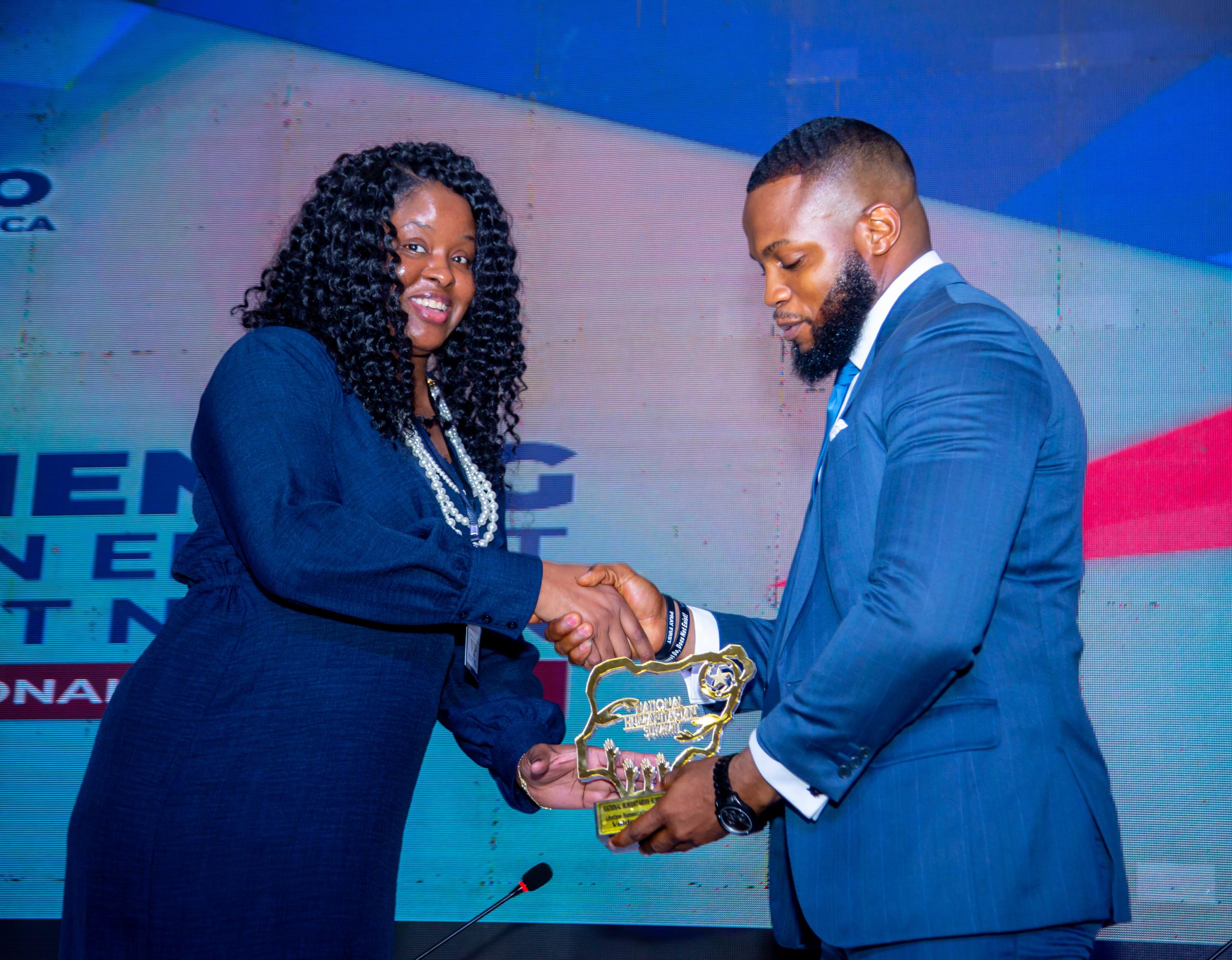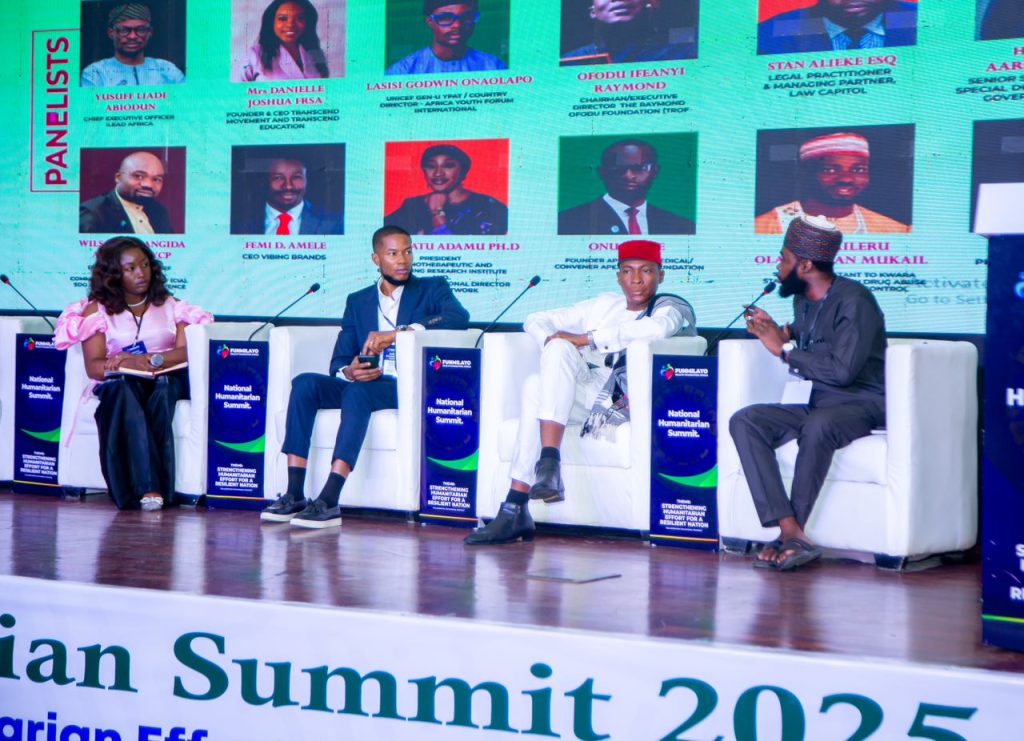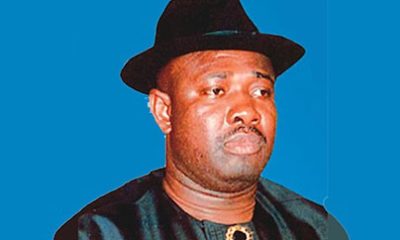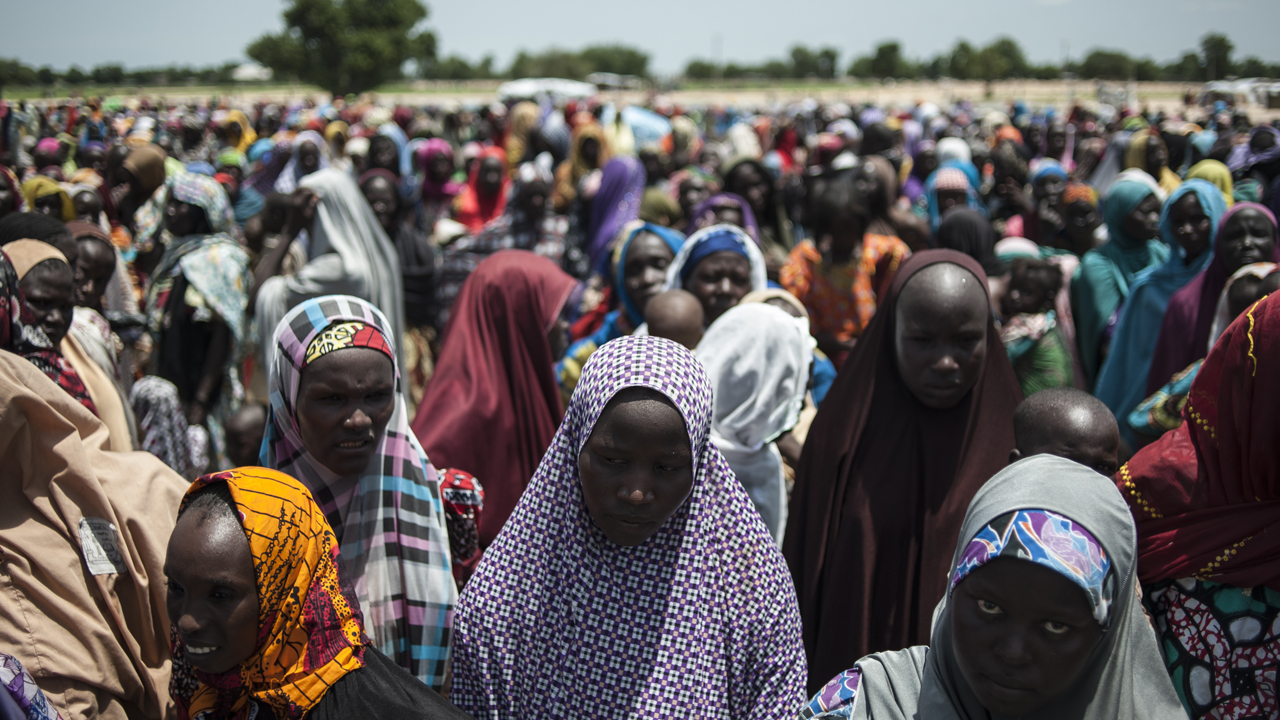FEATURES
The South-East and Ayo Adebanjo’s Musings on Power Shift
By Azu Ishiekwene
We can argue all day about being strategic, about optics or the need to avoid sending the message that violent rebellion pays and we would be right. But if “justice and equity” are the reasons why other regions have had their turn as tokens of good faith and reconciliation, then we cannot justify a different treatment for the South-East.
And I don’t have to have a dog in the fight to say so.The statement by the leader of the Yoruba cultural group, Afenifere, Ayo Adebanjo, that the South-East should get the next turn at the presidency has ruffled quite some feathers.
This comes at a time when nearly half a dozen of his kinsmen have shown interest and almost nothing seems certain anymore because the two major political parties, having just discovered the virtue in merit, are now disposed to an open race.
The only thing that is certain is where the presidency may not go to: the South-East. When you hear top politicians talking about power shift, and insisting that the president after Muhammadu Buhari should come from the South, for the sake of “fairness and equity”, they are not talking about the country’s most excluded region – the South-East.
They are not talking about the region with the least federal presence, the least representation in federal establishments and the least number of states, all of which are a price for a war fought over 50 years ago.
The advocates of power shift have managed to define a geopolitical South that excludes the South-East. They speak only of equity in power shift insofar as it means power going to the South-West or ‘South-South’. Adebanjo bucked the trend, and Edwin Clark has also lent his voice against the tendency.
In a country where hypocrisy is a political virtue, the mindset of those who preach fairness and equity is governed by the Matthean principle: Those who have will have more added to them, so that they can have even more at the expense of the disadvantaged.
That’s why the South-West, which in the last 23 years has had 15 years of the first two top positions, currently has six candidates aspiring for another eight years, while the ‘South-South’, which has had four years at the top job, has lined up six aspirants as of the time of writing.
And the North, which never fails to disappoint in the politics of benevolence, is saying on the one hand that power should shift to the South, and on the other propping up its own candidates to join the race, after about ten-and-a-half years of being at the helm since 1999.
In the All Progressives Congress (APC), for example, the first sign from the North that all the talk about a Southern candidate meant nothing was when the minister of Justice and Attorney General of the Federation, Abubakar Malami, shelved the idea of being a running mate potentially to a ‘South-South’ candidate, fancied at the time to be former President Goodluck Jonathan.
Insiders confided in me this week that, “It was after the Jonathan idea met the brick wall that Malami revived the idea of running for Kebbi governorship. The dead Jonathan project was a clear signal to Malami that given the large crowd of aspirants from the South, a northerner might do better at the APC primaries and doom his vice-presidential ambition.”
How do critics of the Igbo quest explain the fact that even though the South-West has enjoyed the lion’s share of power in two decades, it is still in the race with a bigger sense of entitlement than any other region? Or why did three other Northern aspirants contest for APC’s ticket against Buhari in the party’s presidential primaries, despite the push for a consensus candidate at the time?
Let us return to the South-East. What is it about the region that makes it so convenient to treat it with spite and malicious negligence?
Some say that the region has to grow up and earn its place: No one hands over power on a platter. That sounds sensible and logical – that is, until we remind ourselves that the whole business of Federal Character, enshrined in Nigeria’s constitution today, was power redistribution served on a platter.
The Federal Character Commission (an elevation of quota system) is a useless bureaucracy costing the country billions of naira. It was improvised by General Sani Abacha in 1996 to help disadvantaged states catch up with the others and to create a sense of belonging. I wonder why the beneficiaries, mostly Northern states, did not think it prudent to earn the privileges bestowed by this crooked system.
How about the argument that the South-East does not deserve a shot at the presidency at this time because of the inability of Ndigbo to unite around one candidate and pursue a common agenda – that they are masters at the game of group betrayal and disassembling politics?
Those who make this argument cite Senator Orji Uzor Kalu, Senator Eyinnaya Abaribe and Imo State governor, Hope Uzodinma, who appear to be inclined to candidates outside the zone, as examples of Ndigbo’s penchant for betrayal and backstabbing. Why can’t they rally around any of the 16 Igbo candidates in the race?
If the South-East is Nigeria’s capital of disunity, how do the proponents of this argument explain the ambitions of Asiwaju Bola Ahmed Tinubu, Vice President Yemi Osinbajo, Senator Ibikunle Amosun, Governor Kayode Fayemi, and potentially, Pastor Tunde Bakare, who are not only from the South-West, but are all members of the same political party?
How do critics of the Igbo quest explain the fact that even though the South-West has enjoyed the lion’s share of power in two decades, it is still in the race with a bigger sense of entitlement than any other region? Or why did three other Northern aspirants contest for APC’s ticket against Buhari in the party’s presidential primaries, despite the push for a consensus candidate at the time?
Not done, there are others who would argue that politics is a game of numbers. If the South-East does not have the numbers and cannot negotiate with others to its advantage, as it did in 1959, why should it – or anyone – blame others for its current misfortune?
That sounds logical, until you cross to other zones, like the ‘South-South’, for example, that apart from producing a president, has reaped financial rewards and political benefits, from derivation to special commissions and an amnesty programme, far in excess of its numerical strength.
In the mathematics of a federation, the cold abstraction of numbers sometimes deserves to have a human face. That was why Jonathan became president; that is why Quebec retains its distinct cultural and political identity, despite its union with Canada.
Anyone who has the faintest idea of what has been going on in the South-East, especially in the last four or five years, should be worried. But perhaps we should pause and examine the conditions under which three Nigerian presidents – Obasanjo, Jonathan and Buhari – emerged in the last three decades.
Then, of course, there are those who argue that rotation is pointless because it is simply the crutch of the thieving political elite. Ordinary people up and down the country, North and South, hardly benefit. And when the elite are conspiring to steal, they hardly discuss tribe, religion or region. We should be concerned about what the candidate can – or has done – rather than where he or she is coming from.
That is true. But that truism applies to all six zones in the country. I completely agree that there should be a broader definition of who benefits from power beyond zoning; a need to make power more inclusive, accessible and accountable. But why didn’t that begin in 2013 when Northern elders, determined to remove Jonathan, said, “power rotation was a mark of equity and justice”?
If it’s not good enough to stop former President Olusegun Obasanjo returning to govern as civilian president for eight years, after three years as military president, and it’s not strong enough to stop Buhari copying Obasanjo’s example, why should it be the albatross of the South-East?
In fact, the last time the Southern Forum, led by Governors Peter Odili, Chimaroke Nnamani and Victor Attah pressed for power shift in 2007, they capitulated and allowed Obasanjo to hand over to Umaru Shehu Yar’Adua!
In the current calculations about where the next president should come from, perhaps the biggest elephant in the room is the spectre of the separatist agenda in the South-East, largely promoted by the Indigenous Peoples of Biafra (IPOB). Separatist-related violence in the South-East has claimed hundreds of lives, ruined lives and left the region devastated.
Those who oppose power shift to the region argue that an Igbo president, after years of violent confrontations in the South-East, with the political leaders looking the other way most of the time, would amount to rewarding rebellion, and who knows how or where it would end?
That is frighteningly seductive. Anyone who has the faintest idea of what has been going on in the South-East, especially in the last four or five years, should be worried. But perhaps we should pause and examine the conditions under which three Nigerian presidents – Obasanjo, Jonathan and Buhari – emerged in the last three decades.
Obasanjo emerged on the back of widespread violent disturbances, especially in the South-West, after the annulment of the 1993 election and the death of MKO Abiola. Obasanjo, a Yoruba president, was the North’s peace offering to the South-West, as Jonathan was to the implacable ‘South-South’ and Buhari to the North – all of this regardless of the near ungovernable state of these regions when these presidents emerged and allegations of complicity against one of the candidates.
We can argue all day about being strategic, about optics or the need to avoid sending the message that violent rebellion pays and we would be right. But if “justice and equity” are the reasons why other regions have had their turn as tokens of good faith and reconciliation, then we cannot justify a different treatment for the South-East. And I don’t have to have a dog in the fight to say so.
It’s time to end the obfuscation and pussyfooting and to call this spade by its name: Nigeria must stop treating the South East as if it does not matter and still hope to find peace.
Azu Ishiekwene is Editor-in-Chief of LEADERSHIP.
FEATURES
Rise In Male Hair Braiding: Fashion or decline in African values?

In recent years, the landscape of men’s fashion and grooming in Nigeria has seen a notable shift, with hair braiding emerging as a significant trend among young men.
Once seen as a style reserved for women, braided hairstyles are now redefining masculinity on the streets of Nigeria.
The practice has now evolved into a form of cultural expression, artistry, and personal identity for Nigerian males.
This growing trend is not just about fashion; it challenges cultural stereotypes, sparks conversations about gender norms, and signals a broader shift in how young Nigerian men see themselves and their identities.
Speaking on the trend, contributors appraised several factors contributing to the drift among young men in Nigeria society.
Mr Chinemerem Ndinojue, a youth and fashion enthusiast, described hair as a deep personal expression of identity.
“To me, hair is an extension of one’s personality; in African history, braids were more than fashion — they were symbols of resistance, identity, and even communication during the era of slavery.”
Ndinojue argued that, modern youths, particularly the Gen Z, use braids and other hairstyles to reflect creativity and stand out in industries like fashion and entertainment.
“Many of us are into music, design, content creation and our appearance is part of the brand; our parents rocked Afros in their time.
“It is the same expression in a different era; you cannot judge a person’s morality by their hairstyle,” he said.
However, Mr Michael Samson, a civil servant, sees the trend differently, describing it as a departure from African tradition and an influence of misguided westernisation.
“Our traditions have been replaced by modern civilisation; most of these boys are not celebrities; yet, they spend thousands on hair that serves no purpose.
“Worse still, some use these looks to cover fraudulent activities.’’
He cited an incident at a bank where a teenager, allegedly involved in internet fraud, claimed to have earned in a month what an older man earned in a lifetime.
“Such wealth without value is what leads to this arrogance; many use these styles to gain attention, not out of professionalism,” he said.
Echoing similar sentiments, Mrs Blessing John, another civil servant, said male hair braiding undermines cultural and moral standards.
“For me, it is not encouraging; we are Africans with strong cultural values; in our tradition, men do not braid their hair; even in professional spaces namely medicine, law, engineering, you do not see such hairstyles; there is a reason for that.”
She warned that many young men who braid their hair may be involved in societal ills such as drug abuse and cultism.
“We need value reorientation; parents must go back to teaching their children the right path; we must not forget where we come from,” she said.
Meanwhile, Mrs Ijeoma Azubuike-Okigbo, a communications professional, offered a more nuanced view.
While she admitted personal reservations about male braiding, she acknowledged the growing influence of pop culture.
“Young people today look up to personalities like VeryDarkMan among others who braid their hair and still command respect.
“If the society begins to accept it widely, it might one day become a part of our evolving culture.”
She said that many parents even took their young male children to salons for braids, suggesting the trend was already gaining ground across families.
“Ultimately, hair is natural; how one chooses to style it is personal; society is changing, and this may be part of that evolution,” she said.
Mr Toks Adesanya, a community elder, expressed strong disapproval over the rising trend of hair braiding and dreadlocks among young Nigerian males, describing the practice as a “taboo” and a deviation from cultural norms.
Adesanya lamented what he referred to as the erosion of African values and the shift in traditional masculinity.
He argued that hair braiding in men was not only alien to the culture but also reflective of a larger societal breakdown.
“It is a taboo for a man to braid his hair; when I see a boy or a man doing such things, I consider it a disgrace and a deviation from our tradition.
“Such hairstyles are not only culturally inappropriate but also expose young men to unnecessary suspicion by law enforcement.
“Thank God, the Special Anti-Robbery Squad of the Nigeria Police is no longer around; many young men would have fallen victim because such looks make them easy targets; police often associate such appearance with cybercrime or cultism.’’
Adesanya recalled a personal experience from his youth, when he briefly curled his hair to attend a party, only to be severely reprimanded by a family member.
“I felt accepted at the party, but when I got home, someone close to the family expressed deep disappointment; she said I had disgraced manhood; I felt ashamed and removed the curls the next day.”
He also attributed the trend to poor parenting, environmental influence, and a lack of religious and societal guidance.
“Our society no longer checks excesses; parents are absent, churches and mosques are silent, and this silence is taken as approval.
“Even in job interviews, appearances matter; a man with braids or dreadlocks may not be taken seriously if he should appear in such manner for job interviews,” he said.
Recently, Gov. Umar Bago of Niger banned wearing of dreadlocks among other things due to the rise of insecurity in the state.
Bago ordered security agents to clamp down on thugs and those abetting them in disrupting public peace in Minna, the state capital where violence had become a daily occurrence.
He also directed the arrest of people wearing dreadlocks, following a series of calls by terrorised residents of Minna to curb the worsening thuggery that had claimed the lives of many innocent people.
The governor said that thugs had turned the streets of Minna into a battleground since he took over leadership of the state.
As the debate continues, the question remains, is male hair braiding in Nigeria a fading of traditional values or an embrace of modern self-expression? (NANFeatures)
FEATURES
Miss Valdeen N. Pierre Honored with Humanitarian Award at the 2025 National Humanitarian Summit

In a remarkable celebration of humanitarian service and strategic collaboration, Miss Valdeen Pierre , Country Director – United State ; A New Thing International foundation ; was honored with the Humanitarian Award at the prestigious National Humanitarian Summit 2025, held at the Shehu Musa Yar’Adua Centre, Abuja.
The award recognizes Miss Pierre’s and other humanitarian leaders unwavering commitment to humanitarian causes, particularly her collaboration with A New Thing International Foundation on the SOBE Project (School Outreach for Better Education) across Sokoto, Kebbi, Plateau, Niger States and the FCT.
Her efforts have significantly contributed to improving access to quality education and raising awareness about social vices among schoolchildren in underserved regions.The summit drew an esteemed audience comprising multiple stakeholders across the humanitarian value chain, including the Minister of Youth Development, Minister of Humanitarian Affairs, Special Assistant to the President on Humanitarian Affairs, the First Lady of Kwara State, First Lady of Zamfara State, representatives of United Nations Humanitarian Agencies, NGOs, INGOs, and other key players in the humanitarian sector.

The event featured a vibrant mix of panel discussions, keynote addresses, and the unveiling of strategic development plans aimed at strengthening collaborative impact across Nigeria and beyond.
In his vote of thanks, Ambassador Kenneth Anetor, the Executive Director of A New Thing International Foundation and Chairman of the Planning Committee, delivered a passionate closing speech. He commended the honorees and stakeholders, issuing a clarion call for deeper collaboration and renewed commitment to advancing strategic organizational development goals. His rousing remarks inspired attendees to rise to the moment and forge stronger partnerships for sustainable impact.
Ambassador Anetor also extended profound appreciation to the summit’s convener, Ambassador Michael Timothy, of the Funmilayo Health Foundation Africa, for the opportunity to serve as Chairman of the Planning Committee, and for creating a platform that celebrates excellence in service and drives transformative conversations in humanitarian work.
The National Humanitarian Summit 2025 stands as a milestone in Nigeria’s journey toward inclusive, people-centered development, with Miss Valdeen Pierre’s recognition serving as a beacon of hope and an example of the power of global partnership in humanitarian efforts.
For media inquiries , information, or donations please contact:
Email: anewthingworldwide@gmail.com
Phone: +2347037474611
Website: www.antworldwide@gmail.com
FEATURES
A Pope’s Funeral and New Leadership Paradigm
By Dakuku Peterside
The world came together on a warm April morning in Rome. Under Bernini’s wide colonnade, a simple wooden coffin lay, almost shy against the grand marble of St Peter’s. It held the body of Jorge Mario Bergoglio, better known as Pope Francis; it also carried a final message, passed without words.
As I watched the funeral, I wondered if the message would be clear to leaders in places where leadership is often about show, instead of service. Nigeria, my country, came to mind, because its people long for leaders who serve with humility, rather than rule with power.At first glance, comparing a Pope to political leaders might seem unconventional, but important commonalities exist. Upon reflection, parallels are audacious: a Catholic pontiff and a republic’s president inhabit very different orbits. Yet, both preside over institutions that store immeasurable wealth – monetary, cultural, spiritual – and both command loyalties that can bless or wound the human spirit. The difference lies in the currency they spend. Francis traded almost exclusively in moral capital. His motorcade rarely stretched beyond a small Fiat. He lived in a guesthouse, took meals in a communal dining hall, and instructed that his funeral expenses be redirected to shelters for people experiencing homelessness.In stark contrast, many political leaders, notably in Nigeria, have consolidated power through patronage, wealth accumulation, and coercion, severely damaging their credibility and the public’s trust. Nigerian power, by contrast, is often measured in sirens, convoys, and security votes; in the distance a public office holder can place between himself and the exhaust of everyday life. The funeral invited a radical thought: What if legitimacy flowed from humility, not from the choreography of importance? This stress on the importance of humility in leadership could enlighten and provoke reflection on governance.Humility, though, is not a mannerism. It is a decision made daily, a refusal to situate oneself above the collective story. Francis’ last request, “bury me outside the Vatican walls”, was a slight tectonic shift, the first such break with tradition in over a century. It told pilgrims and presidents alike that holiness is not the property of marble tombs but of living deeds. Pope Francis was buried in a simple wooden coffin, instead of the traditional three-nested casket, symbolising a life dedicated to humility and service. This act is probably the first of its kind in papal history. This powerful statement of reform and decentralisation challenged entrenched traditions that maintain privilege.Nigerian leaders, accustomed to the trappings of power and privilege, could profoundly benefit from embracing servant-leadership that prioritises citizens’ welfare above personal gain. Imagine for a moment a Nigerian governor choosing to sleep occasionally in the wards of a rural clinic that lacks electricity, a senator commuting without escorts, or a budget speech opened with an apology to those whose dreams are still postponed. Such gestures, inspired by Pope Francis’ humility, would earn ridicule from cynics trained by years of theatrical piety, yet they might also crack the granite of distrust that politics has laid around the citizen’s heart.Throughout his papacy, Francis consistently demonstrated simplicity, living modestly, rejecting extravagance, and continuously expressing empathy for ordinary people. For Nigerian political leaders, adopting similar modesty could substantially enhance their legitimacy, distancing them from the extravagant lifestyles that alienate them from the realities of the people they govern. By following PopeFrancis’ example, Nigerian leaders could bridge the gap between themselves and the citizens they serve, fostering a deeper connection and understanding.The scenes in Rome offered other lessons as subtle as incense. Refugees and cardinals knelt side by side; presidents exchanged the sign of peace; atheists joined murmured prayers. I thought of the Plateau and Benue, of plains made fertile by rivers and yet stained by cycles of reprisal killings, each side armed with grievances as old as maps. If a Pope’s funeral could fold the devout and the doubtful into the same silence, perhaps state ceremonies in Nigeria could be reimagined as platforms for reconciliation, rather than patronage. Symbols matter because they reach the imagination before the policy can touch the pocket. A wooden coffin whispered more convincingly than any communiqué on inclusive governance ever could.None of this is to canonise a man in hindsight; Francis was criticised, resisted, and sometimes misunderstood. Reform always bruises the edges of comfort. But in death, he achieved what many living leaders rarely managed: he convinced opposing camps to pause their quarrels long enough to say, “Thank you, Father.” The applause that rippled through St Peter’s Square did not celebrate power captured; it celebrated power surrendered. How extraordinary and disconcerting to think that the shortest route to influence might be the surrender of privilege.I wish to reference the testimony of Vinod Sekar, the Hindu philanthropist who once described being in the presence of “someone relentlessly good,” pointing to Pope Francis. Sekar confessed that holiness ceased to be a place, temple, mosque, or cathedral, and became instead a verb: to shelter, to include, feed. Nigeria’s streets are crowded with worship houses, yet the mood often betrays scarcity – the scarcity of trust, of light, of potable water, of the belief that tomorrow might be gentler than today. What if holiness were measured not by the decibels of our prayers but by the quality of our public schools and hospitals? What if fiscal policy became a beatitude, not just a technical tool or to score cheap political points but a source of broad social good?Authentic goodness, the kind that disarms calculation, cannot be legislated; it must be modelled. Leaders who publish their asset declaration unprompted, reject grandiose titles, and break bread with market women without cameras in tow, begin to tilt the atmosphere. And atmospheres are contagious. When a Pope chooses simplicity, bishops take notice; when a governor chooses public transport, commissioners start to wonder whether the show of might is worth its cost. A single act does not topple corruption, but it can short-circuit the logic that sustains it.Critics will argue that symbolism is cheap and that coffins and cassocks cannot patch roads or fund hospitals. They are right, unless the symbol changes the story, and the story changes the budget. A nation cannot legislate self-respect into its citizens, while its leaders accumulate properties in distant capitals. Neither can it ask for sacrifice, while official lips sip champagne at state banquets. The funeral in Rome stubbornly insisted that credibility is the one commodity no treasury can purchase; it must be earned in increments of integrity.As I write, the image of that lone coffin lingers, framed by sunlight and the tear-streaked faces of strangers who felt seen by a man in white. Power looked strangely like the vulnerability that morning, and history tilted, not dramatically, but perceptibly, toward the possibility that public office might again be synonymous with public service. I imagine a version of that morning unfolding on Abuja’s Eagle Square: no imported SUVs, no choreography of arrival times to signal rank, only leaders standing shoulder to shoulder with nurses, farmers, students, and the internally displaced. I imagine a moment when applause signals not relief that the ceremony is over but gratitude that the example is true. Perhaps that is naïve. Yet every durable reform was once a naïveté stubborn enough to outlive its ridicule.
The cypress boards of Francis’ coffin will one day fade, but the memory of his choices will migrate from anecdote to folklore, from folklore to benchmark. Nigeria, a country whose anthem pleads to “build a nation where peace and justice shall reign”, needs new benchmarks more urgently than new oil blocks. It requires the quiet scandal of servant leadership to make corruption look as outdated as a triple-nested casket. Nigerian leaders should embrace key principles drawn from Pope Francis’ life and funeral rites: humility that transforms rulers into servant-leaders; real and courageous reforms dismantling corruption; moral authority grounded in integrity and humility; inclusivity that fosters unity across ethnic and religious divides; and a legacy defined by public trust rather than accumulated wealth.Ultimately, Pope Francis’ funeral provided a profound narrative on leadership that Nigerian political figures must internalise. By embodying these principles, they can cultivate a governance system rooted in moral authority, transparency, and service, genuinely transforming their nation and securing a legacy that endures beyond wealth or power. I end where I began, in the quiet of that Roman square, listening to chants swell like a rising tide, watching a coffin slip into the basilica, and feeling the strange comfort of a paradox: the smaller the ego, the wider the circle of souls who find shelter beneath its shade. This truth, more than any doctrine, is the gospel political leadership must embrace if it hopes to bury an age of hollow grandeur and awaken a season of genuine hope.Dakuku Peterside, a public sector turnaround expert, public policy analyst and leadership coach, is the author of the forthcoming book, “Leading in a Storm”, a book on crisis leadership.



















